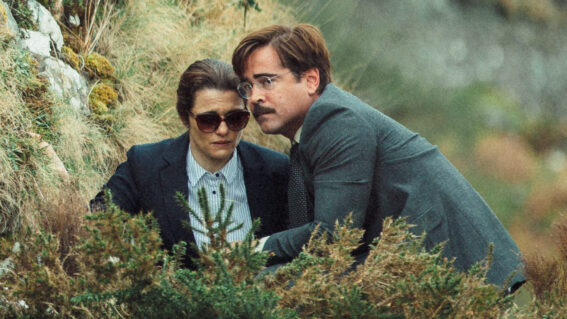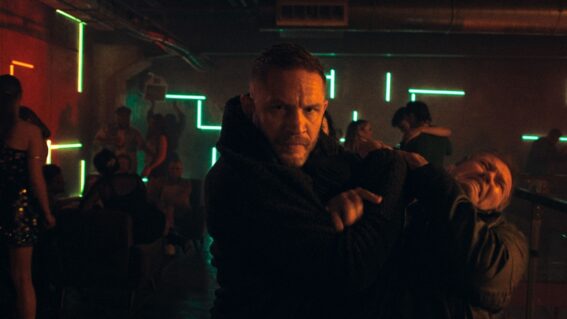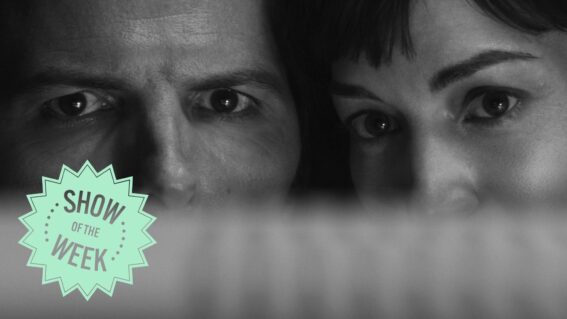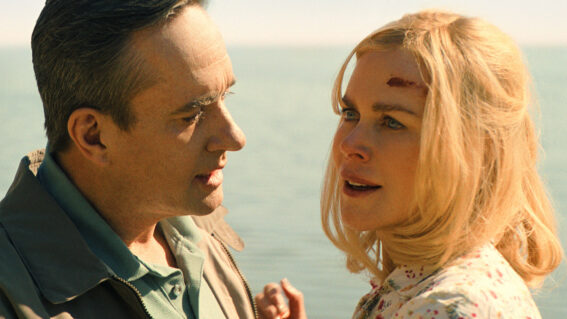Celebrating Tim Burton’s singular, personal and awesomely weird 1988 classic Beetlejuice
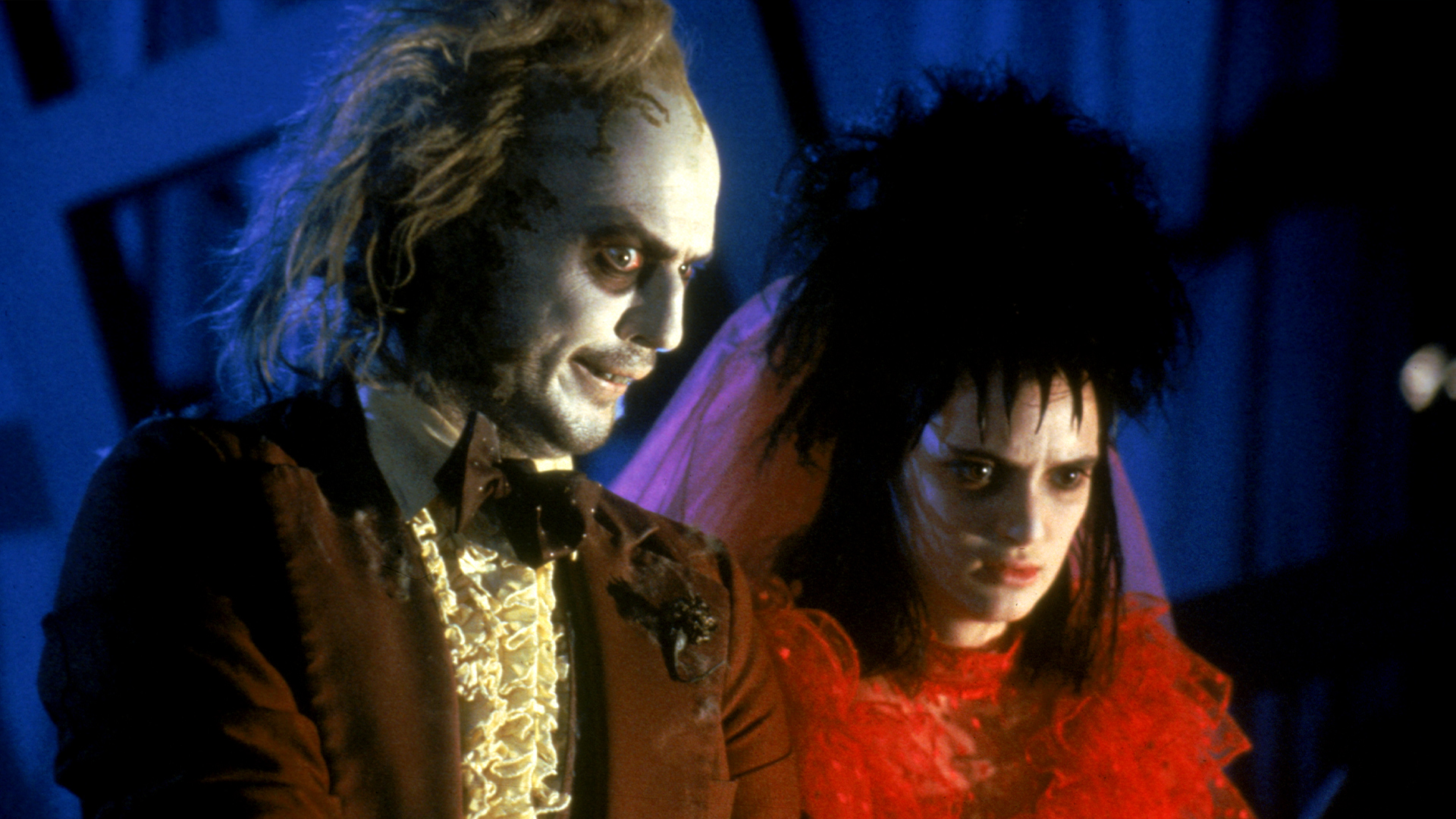
Ahead of the release of new sequel Beetlejuice Beetlejuice, Dominic Corry looks back at the original and its place in popcorn cinema history.
I get a big smile on my face when recalling the 1988 release of Beetlejuice. And not for the regular reason—that 75% of film fandom is nostalgia-driven—but because it’s fun to remember how such a singular, personal and awesomely weird movie was received as an event movie at the time.
I was born in 1977, so I was too young to properly experience how much of an event the Star Wars movies were. As I learned to tie my shoelaces and began paying more attention to such things, I would say the first proper event movie (as we now refer to them) of my lifetime was Beetlejuice. I have vague recollections of Little Shop of Horrors being a really big deal in 1986, but those memories may be partially informed by those giant Big Fresh vegetable mascots. In my memory, Beetlejuice was the first time where the anticipatory hype was as much of a story as the movie itself.
The modern concept of the event movie became properly calcified with the release of 1989’s Batman (which of course, shares a director with Beetlejuice), but it was defo in place with Beetlejuice. Which makes it even more remarkable how specific a vision the film represents.
After Hours was supposed to be Tim Burton’s first movie, but as recounted again in leading man/producer Griffin Dunne’s recently released memoir The Friday Afternoon Club (which I loved), Burton graciously bowed out of the development process when Martin Scorsese displayed interest in directing the film, as Burton knew the legendary director’s involvement would only help the project.
So instead, the Cal Arts animation graduate who’d attracted Hollywood’s attention with his stop-motion animated shorts Vincent (about Vincent Price, who he’d later work with in Edward Scissorhands), and Frankenweenie (which he’d mount a feature-length version of in 2012) made his Hollywood debut with a little movie named Pee-wee’s Big Adventure.
An awesomely weird movie in its own right, Burton’s pop fantasia sensibilities aligned perfectly with the character of Pee-wee Herman, and the film was enough of a success to get another, even more ambitious, cool weird thing going.
Nobody exemplifies the “blank cheque” idea (that directors get to do whatever they want when they have success) better than Burton, and nobody has used their well-earned capital more enthusiastically.
The moderate success of Pee-wee’s Big Adventure gave Burton the power to make a dark weird comedy about ghosts and demons, and the success of that gave him the power to make Batman the way he did, and the success of that gave him the power to make Edward Scissorhands.
It also gave him the power to make Batman Returns even weirder, but then the McDonald’s corporation and the concept of movies being ‘toyetic’ entered the chat, and blank cheques became a little harder to come by. But arguably nobody has done more with them than Burton.
It’s easy to see him as a pure artist stifled by a corporate system, but what is key to Burton’s success is that he has very commercial sensibilities. There’s a reason his weird shit is embraced by the masses, his culture is definitely pop.
That said, he makes pop look good. And the suits still probably thought he was a weirdo the whole time.
So, it should be noted than in developing the script for Beetlejuice, Burton made it much lighter in tone.
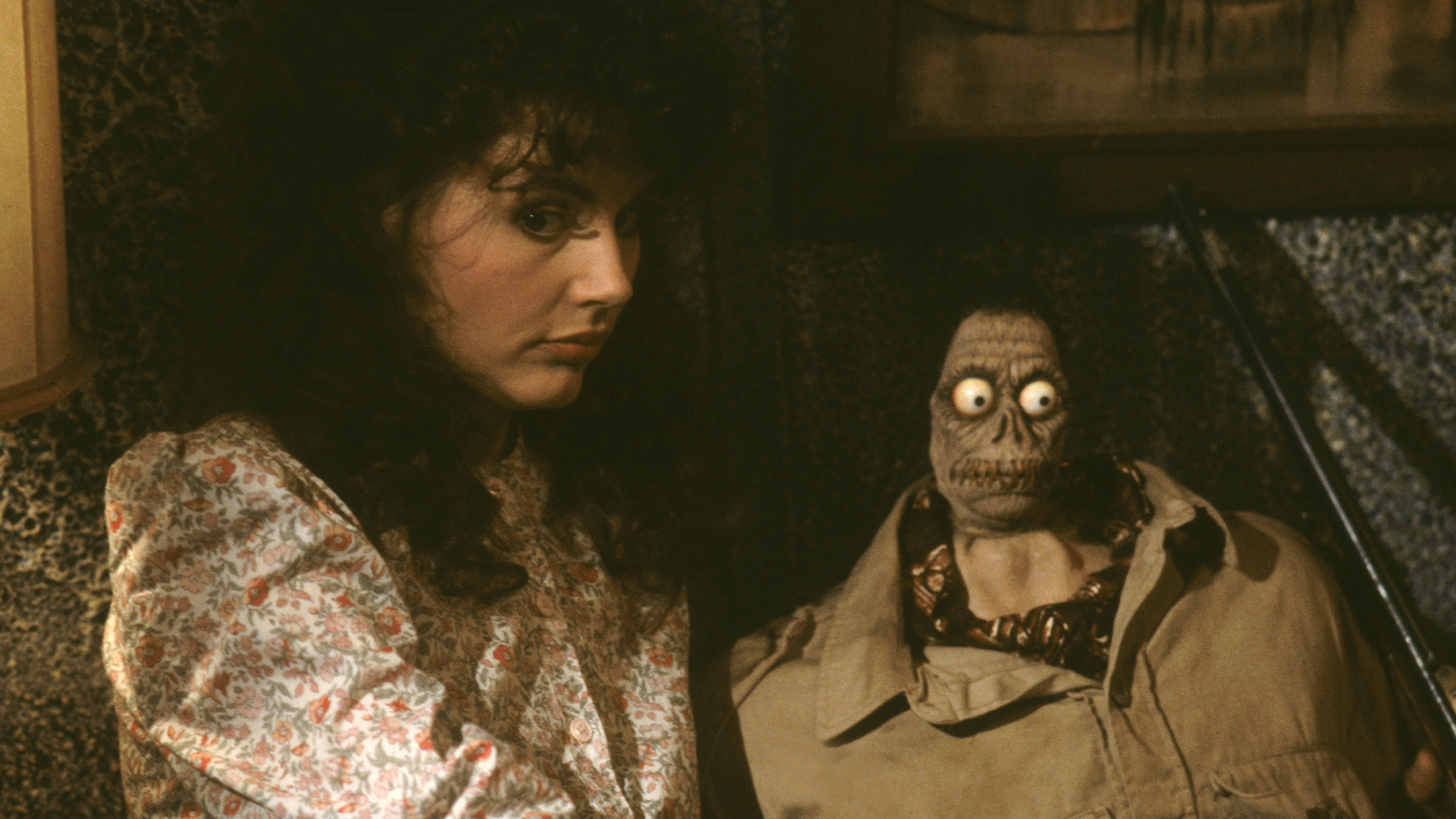
Comedy was such a huge genre in the late 1980s, but there’s a reason that decade is wildly underrepresented in the Criterion Collection: many of them were extremely bland. So with Burton allowed to indulge himself just a little bit in Beetlejuice—I’m sure he fought the execs the whole way—the film felt almost unlike anything else we’d seen before.
As with his best movies, Burton’s deep love for classic American pop culture informs every corner of the film. And as much as he toned down the script’s nastier elements, there remains an edge to Beetlejuice. Plus there is stop-motion in it. Stop-motion makes everything better.
That’s probably the only thing I absolutely hope to see in the sequel—a little stop-motion animation—otherwise, they can do whatever they want.
Michael Keaton’s performance as a lounge lizard demon soul broker, a character widely reported at the time to have been conceived with Sammy Davis Jr in mind—is a thing of scuzzy beauty. And it laid the foundation for his casting as Bruce Wayne in Batman, another blank cheque play from Burton.
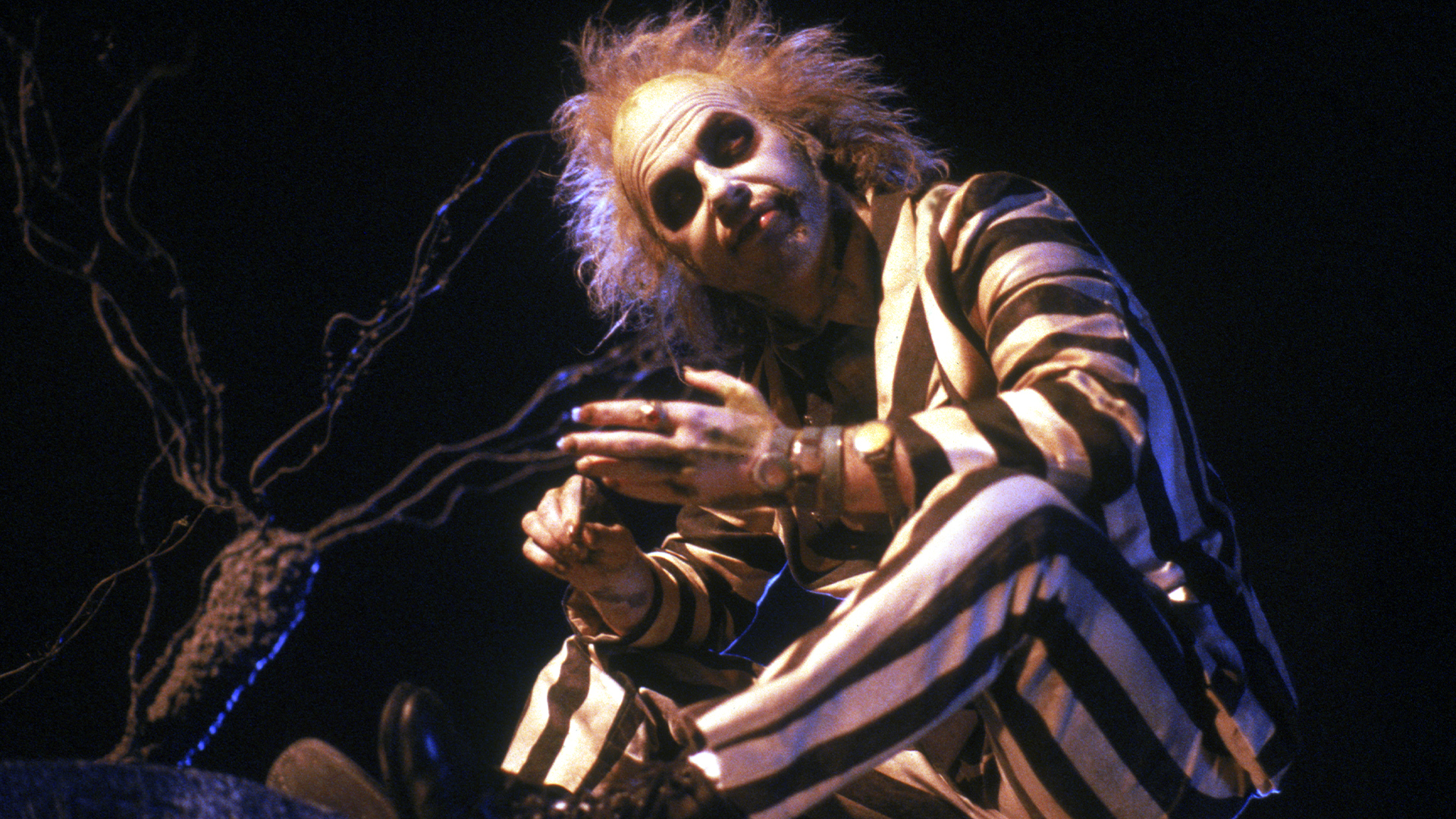
My other favourite thing about Beetlejuice is how it’s kind of a child-friendly horror film. It’s like he took the “Large Marge shows her face” scene in Pee-wee’s Big Adventure and constructed a whole notion of the afterlife around it. Kids under ten could handle Beetlejuice, but it was also a little bit freaky and might inform a nightmare of two. Bring back that sort of thing.
However. There is part of me that also gets a little wistful when I think about Beetlejuice, because in grand Hollywood tradition, it feels like all the wrong lessons were learned from its success.
Instead of giving more young talented individuals with a vision the opportunity to make their own big weird things, Hollywood instead turned Burton’s sensibility into a repeatable aesthetic that it proceeded to grind into the ground.
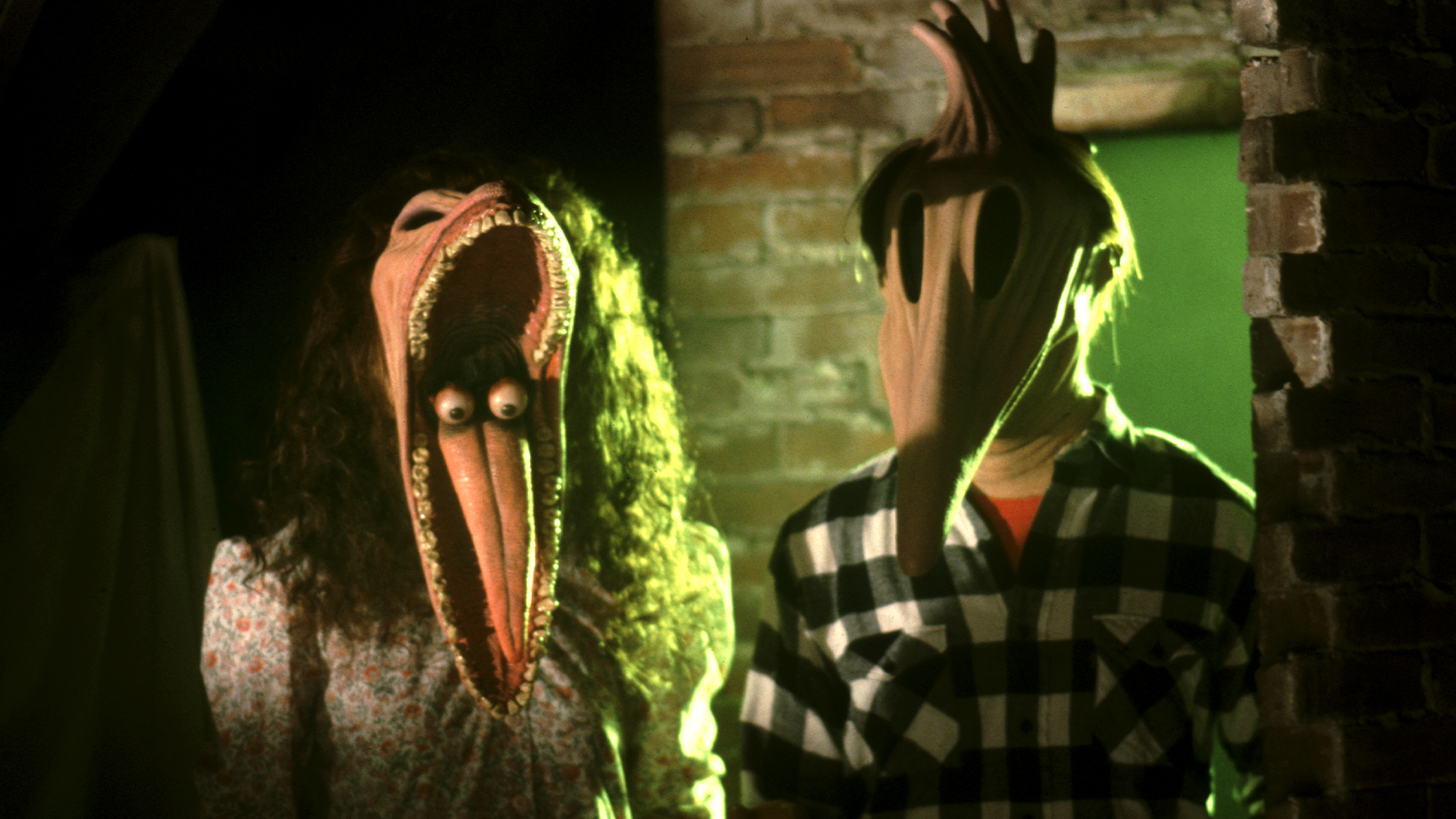
When Burton turned down the opportunity to direct The Addams Family, they just went ahead and made a Tim Burton movie without him. I love that film and its sequel, but Burton’s quirky gothic pop leanings have arguably been too influential. It’s all good and well when he does it, but at least he has shown a desire to explore different colour palettes.
The most exciting about the new Beetlejuice sequel is that it appears to have rejuvenated Burton. I’m basing that on the press for the film, which should never be taken at face value, but he seems livelier talking about this than he has for years, and his last few movies have almost felt like films he also turned down and then were made anyway in his mould.
Burton has a lifetime of goodwill from me so he can do whatever he wants, but this movie feels like it has more of a chance than most to recapture some of that early Burton mania. As long as there is some stop-motion in it.




